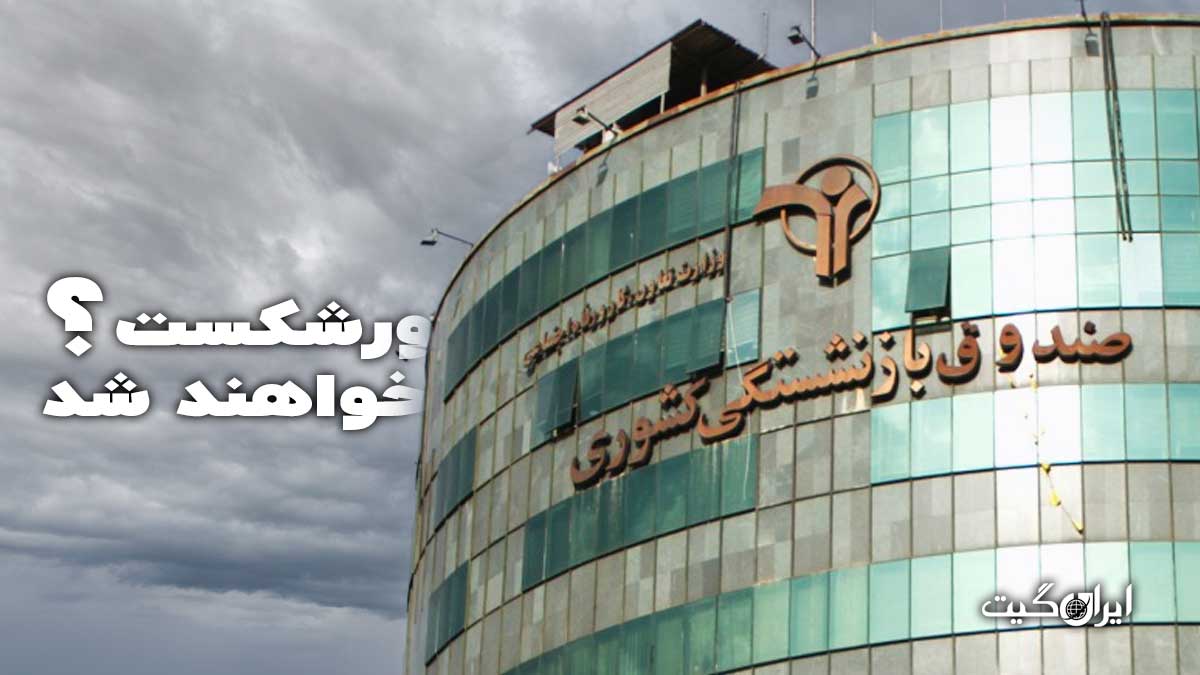Retirement funds will go bankrupt
According to Iran Gate, recent statements by a Ministry of Welfare official about the worsening crisis in retirement funds have raised deep concerns among economists. However, this issue is not new; it dates back to the early years of the revolution, especially the 60s decade.
But it seems that the chronic crisis in these funds has turned into a super crisis in recent years, and today it has become a post-crisis. Economists believe that the failure to resolve this post-crisis could even lead to an economic collapse and ultimately the collapse of the Islamic Republic system.
More than a year ago, Dr. Masoud Nili, a prominent Iranian economist, warned about the intensification of the crisis and bankruptcy of pension funds. He referred to the bankruptcy of these funds as a post-crisis situation. Now, one year has passed since that time, and the statements made by one of the government officials, Ibrahim Raisi, to describe the severity of the situation, have attracted a lot of attention. But what is the issue? What is the reason for the bankruptcy of these funds? And why do economists refer to this event as a post-crisis situation that could even lead to the collapse of the country’s economy?
Iran Gate is trying to investigate the roots of this crisis and explain the consequences of reaching its breaking point in a two-part series. The first part of this series focuses on exploring the roots of this crisis.
Selling Qeshm and Kish Islands in exchange for keeping the people silent.
Sajjad Padam, the Director General of Social Insurance at the Ministry of Labor, recently made a controversial statement saying that we have reached a point where we need to sell Qeshm and Kish islands in order to pay the pensions. These statements by the Director General of Social Insurance are enough for us to understand the situation. In other words, pension funds are unable to pay the salaries of their members due to bankruptcy. The situation has escalated to the extent that government officials are forced to use such a scandalous and sensitive example to describe the severity of the situation and attract attention.
In fact, what can be inferred is that the government needs a large amount of money in order to be able to pay pensions, which even the slightest provocation can lead to protests. Therefore, it seems that the government has prepared itself to test its authority by making difficult choices such as selling Qeshm and Kish, so as not to let the flames of this crisis engulf it and become a catalyst for the collapse of the system.
All roads lead to inflation.
The reason why funds in the world are generally very wealthy and rich is because we need to refer back to the economic problems of Iran to answer this question. The chronic inflation in the country’s economy, as mentioned many times before, is the main issue. The government has always relied on oil revenues and has faced budget deficits, both small and large, with the slightest tension in oil exports.
These budget deficits are compensated and covered by non-productive resources due to the lack of dynamism in Iran’s economy. In simpler terms, governments are forced to dip into sectors of the economy that do not have sustainable and productive income in order to pay their employees’ salaries.
This flawed cycle has led governments to constantly borrow from various sources. The central bank has always been the most important and major lender to various governments, and it still is. This type of borrowing is essentially putting their hands in the pockets of ordinary people, because the central bank has to expand the monetary base or, colloquially, print money to meet the government’s needs, which consequently leads to intensifying or creating inflation.
In the view of economists, inflation is seen as a nighttime theft by governments from the pockets of the people. It is essentially the government borrowing from the central bank, which is in fact borrowing from ordinary people. The difference is that governments never repay their debt to the people, and the general public is usually unaware of this silent theft due to their ignorance.
Why bankruptcy?
However, as mentioned, there are other ways to borrow and secure resources to compensate for the deficit. The first way is to reach into the pockets of the people, and the second way is to borrow from other wealthy non-governmental or governmental sources. One of these sources is pension funds, which have been surrounded by controversies since their establishment in Iran. These funds are primarily intended to meet the non-inflationary, non-governmental, and self-sustaining retirement needs of the workforce worldwide, and as a result, they are often evaluated as a factor of welfare in developed countries.
With these characteristics, governments, seeing that these funds have sufficient resources, borrow from them to compensate for the heavy budget deficit in various periods. Considering that inflation in Iran is not only not controlled but also currently at its peak, it is easy to imagine that governments have not only been unable to repay their debts to these funds, but also the volume of these debts has increased annually.
English
View this article in English


